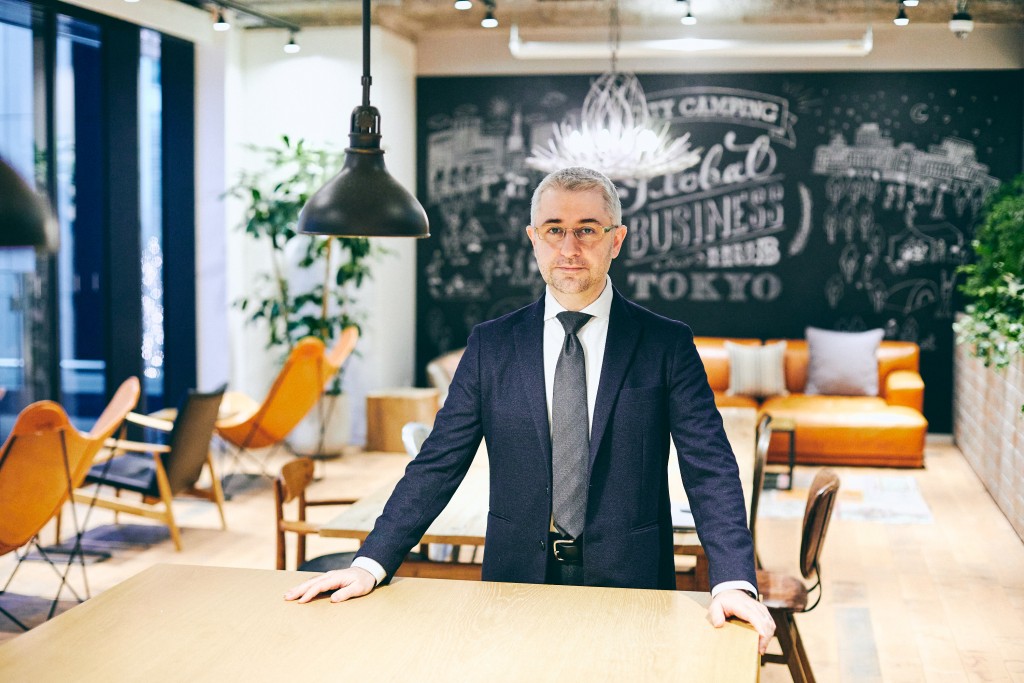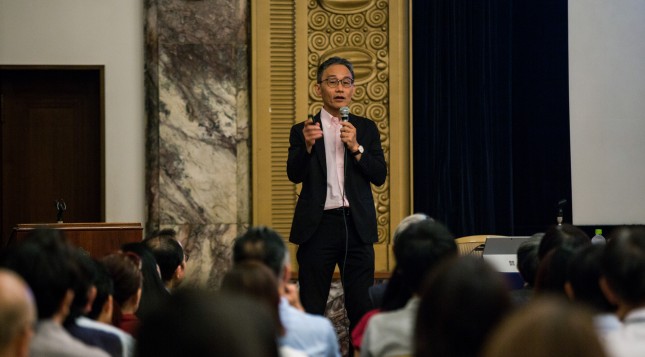One company’s challenges are clues to new capacities: How to build an SaaS without imposing rules on users
SaaS has become an indispensable part of business operations, from cloud accounting to image editing and spreadsheet tools that have recently shifted to subscription models. Cloud storage has existed since the dawn of SaaS, and many companies are now using it. The basic concept of SaaS is a multi-tenant system, and it is often designed to be generic enough to meet the needs of many companies. However, not all companies have the same directory structure for storing files and data, and not all companies have the same access rights.
In response to these needs, Fileforce is a company that offers an SaaS product that can also meet the complex permission settings of individual companies. The company offers the eponymous Fileforce, a cloud-storage service that allows users to store, organize, manage, track, and share corporate files from any device. The company has built a system that can respond to individual issues and is widely used by organizations and projects of all sizes, from enterprises to small and medium-sized businesses.
Although Fileforce is an SaaS-type cloud storage, it can be used to convert on-premise file servers to the cloud with the same rules, and it allows complex permission management and download availability settings to meet the individual needs of each company. We invited Mr. Aram Sargsyan, the company’s representative director, and asked him about the development concept behind the product.
INDEX
・Achieve your company’s mission and vision. Fileforce’s approach to complex issues
・Hiring full-time staff in Japan, even if they are non-Japanese. Human resource development that emphasizes understanding of Japanese culture
・Working more closely with customers to cultivate sustainable relationships
・Key points

Aram Sargsyan, President, Fileforce Co., Ltd.
Sargsyan graduated from M. V. Lomonosov Moscow State University and received his MBA from California State University, East Bay (formerly California State University, Hayward).
Sargsyan came to Japan in 1995 and studied at Waseda University and Hitotsubashi University on a government scholarship before establishing Fileforce.
Achieve your company’s mission and vision. Fileforce’s approach to complex issues
Fileforce was launched in 2014, and, at the time, SaaS-type services were not as mainstream as they are today in major non-IT companies in Japan, where most systems companies used a single-tenant approach to develop systems according to individual customer requirements. In such a situation, Aram’s decision to start his own business with SaaS was inspired by the challenges he experienced while working for an SI company.
Aram: “I came to Japan as an international student, and after graduating, I jumped into the IT world and got a job at a SI company where I developed products according to customers’ needs. The work itself was fulfilling, but I gradually became interested in products such as online services, etc. SI is inefficient because you have to create a system for each customer one by one. But, with products, you can expand horizontally, and if you accumulate know-how, you can provide feedback to customers. I thought it would be more versatile than spending a huge amount of money each time.”

Aware of the challenges of SI, Mr. Aram started his own business in April 2014. The fact that he himself had experienced everything from sales to programming when he was at a development company and understood the whole process was also a big factor. At that time, storage services were just starting to emerge, and he felt doubtful about the attitude of foreign companies that ignored all Japanese business practices and provided services in what he felt was a condescending manner, saying, “This is how your business should be done.”
“IT tools should be used to achieve a company’s mission and vision, rather than sold to a customer while ignoring everything else.” With this in mind, Mr. Aram decided to raise his perspective by one notch to ensure that he could help the company. Rather than just supplementing issues and adding permissions, he thought it would be better to raise his view a little higher and ask himself, “What is the business of this company?” and “How can we help them accelerate their operations more smoothly?” With this awareness, it becomes necessary to address individual issues as well, since a storage service with uniform permission settings alone will not solve the company’s problems.
However, with SaaS, which is based on a multi-tenancy model, there is a limit to what can be done individually. So how does Fileforce develop its products?
Aram: “In order to balance multi-tenancy with functions for solving individual problems, we put a lot of effort into creating a generic model when we receive requests from companies to add such functions. Once we release the product with the generalized model, if we find something difficult to use, we update it. It’s all about the PDCA cycle. It is not possible to respond to all individual needs, but there are always companies with similar needs if you look for them, even if they appear to be individual. Do they really need a product, or do they think they need this service based on a fixed concept because they have never used any other tool before? We will be discussing these issues internally.
Another great feature of Fileforce is the detailed and flexible permission settings. Normally, when migrating from an in-house file server to cloud storage, access permission restrictions are centrally managed for folders and files. However, ‘Fileforce’ allows you to customize more than 20 access permission items, allowing you to set detailed permissions for viewing and downloading not only for each folder and user but also for each organizational unit such as teams. In addition, even with complex directory and folder structures, the settings you want to achieve are always possible, so even companies that manage a lot of content can respond flexibly. As a result of these sincere efforts to address the issues faced by companies, the service has become more versatile.”
Hiring full-time staff in Japan, even if they are non-Japanese. Human resource development that emphasizes understanding of Japanese culture

Fileforce is also unique in its hiring practices. In particular, IT companies run by non-Japanese often team up with people living overseas and offer a variety of employment options. Offshore development is not uncommon. However, Fileforce assumes that no matter what nationality you are, you must live in Japan and be a full-time employee. What is the specific reasoning behind this requirement?
Aram: “Our work involves handling customers’ important data. That’s why I think it is important that the data does not leave the country and that the development process itself does not leave the country. Therefore, in order to improve the quality of our products, we bring in talented people from all over the world, but we hire full-time employees on the assumption that they will all live in Japan. Because we all work in the same place, we develop a common understanding of how important data is to us.
In addition, I am careful not to bring foreign business perspectives to Japan. Japan has its own business customs and organizational logic. Based on this premise, I am conscious of having the participants bring their skills, not their business perspective.”

“Another important thing that Fileforce does is to hire people interested in understanding Japanese culture. In the company, we have opportunities for foreign staff to learn Japanese once a month. While there are IT companies that use English as their common language, we are a company that emphasizes communication in Japanese.”
Aram: “We are providing our products to the Japanese market. If you don’t understand Japanese language and culture, it’s hard to integrate with Japanese customers due to the nature of the cloud-storage business. There are many concepts in Japanese that cannot be translated into English. In particular, the culture of saying ‘otsukaresama’ to each other is a feeling that people outside of Japan do not understand. This is why I would like to work with people who are willing to learn about Japanese culture. Globalization will continue to progress as it has in the past, but in most countries, the Covid-19 pandemic has reaffirmed the importance of the local. In the future, it will be very important to find a good balance between global and local issues.
In addition, in order for these highly skilled people to deepen their understanding of Japan, there is no other way but to carefully explain why things are the way they are and what kind of cultural trends led to them, rather than just telling them that things are the way they are in Japan. This is the only way to get people to understand.”
Working more closely with customers to cultivate sustainable relationships

By finding the right balance between business efficiency and customer needs, the company is able to keep its existing customers satisfied while focusing on LTV as a management indicator. Aram explained to us the value of LTV and the importance of staying in touch with customers.
Aram: “If you want to be a non-churning SaaS, it’s important to stay close to your customers. It’s not about tolerance or efficiency; it’s about how close you are. It’s not that you can’t quit; it’s how to create a service that you don’t want to quit. I believe that this is proportional to the degree of closeness with customers. I believe this is proportional to the degree of customer contact.”
On top of that, Aram is also keen on passing on the company’s philosophy to the next generation.
In the future, I would like to elaborate on the current thoughts I discussed today, such as the attitude of knowing Japanese culture and the relationship with customers. The current members should understand these things and pass them on to the new members. I want to create a circle that can be passed on to the next generation.
In SaaS, even if there are some inconveniences, companies had to conform to the rules of the service. There was such a fixed concept. However, services have diversified, and many companies are forced to have a complex structure. In such a situation, the company has always developed SaaS offerings that are truly attuned to corporate issues and can address individual challenges.
The important thing in business is to solve the customer’s problems. It is not just about providing the obvious services but also about finding a more optimal solution. It was a time when I was once again exposed to the origin of business.
Key points
・Fileforce is an SaaS company that provides a service that can meet complex challenges.
・Individual requests from companies are incorporated into a general-purpose model.
・Discussions are held on whether the product is really necessary for the company.
・Permission settings can be detailed and flexible.
・Even if you hire non-Japanese, have them work in Japan as a basic rule so that they can learn to adapt to and understand the Japanese language and culture.
・Emphasize closeness with customers and aim for a sustainable relationship.
・Pass on the knowledge of Japanese culture and relationships with customers to the next generation.




 GBHT
GBHT 






